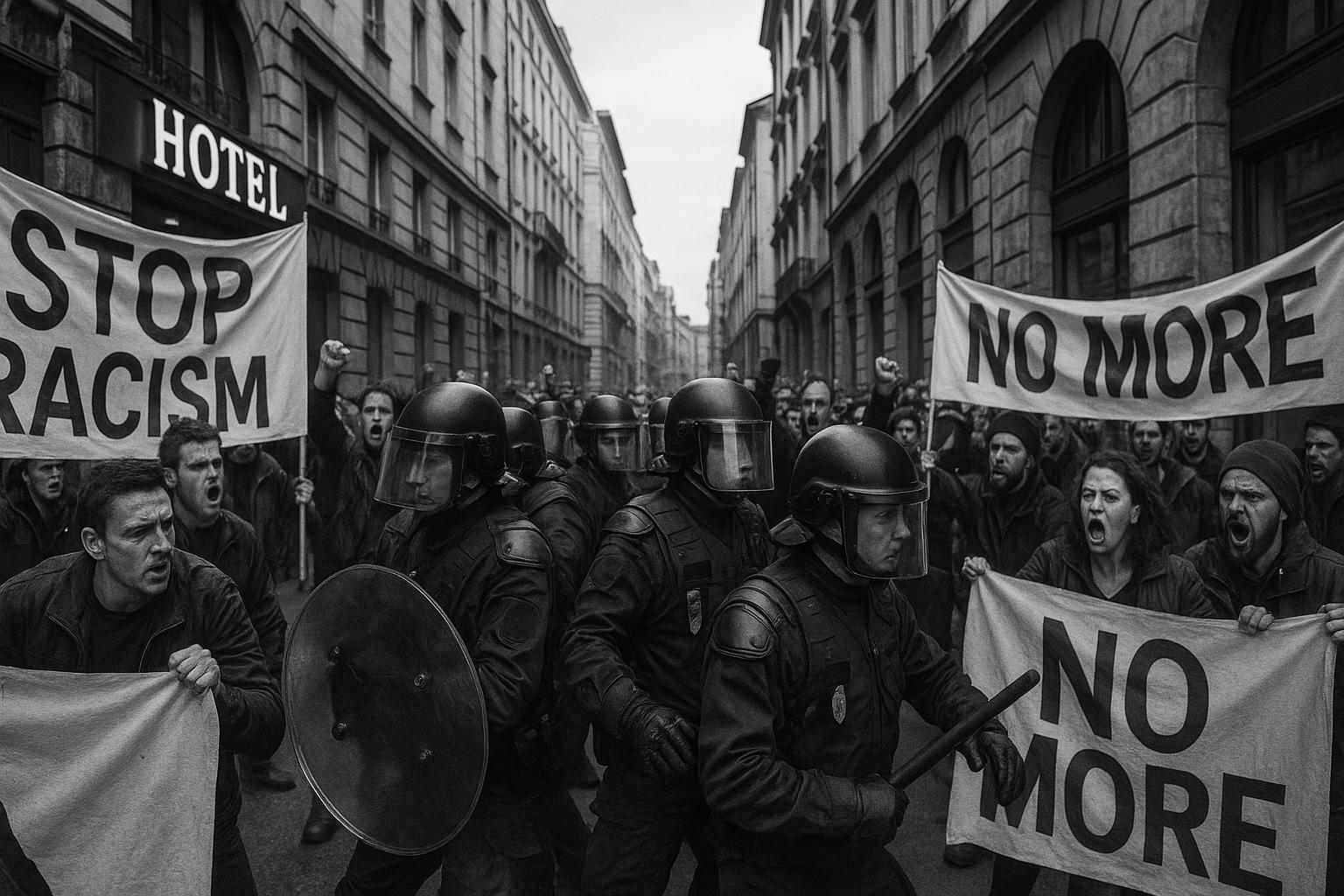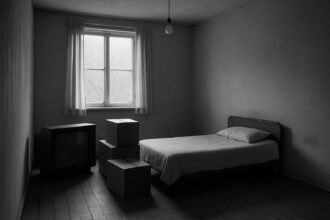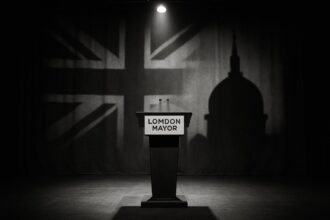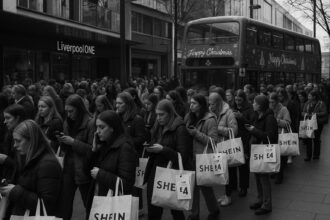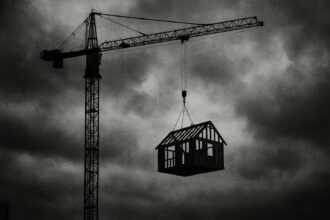Protests against housing asylum seekers in hotels have surged nationwide, sparking clashes, political debate, and deep societal divisions, as authorities grapple with maintaining peace amid rising unrest.
Protests against the housing of asylum seekers in hotels have surged across the United Kingdom, reflecting escalating tensions and community divisions over the government’s approach to asylum accommodation. These demonstrations, often organised under the “Abolish Asylum System” banner, have unfolded in multiple cities and towns, including Birmingham, Bristol, Newcastle, Liverpool, and London. The demonstrations have brought confrontations between anti-immigration campaigners, anti-racism activists, and police into sharp focus.
Yesterday saw a wave of clashes as protests erupted nationwide. Notably, the Britannia Hotel in Canary Wharf, east London, emerged as a significant flashpoint. Over 200 protesters gathered outside the hotel, where rival groups were separated by the Metropolitan Police, indicating the charged atmosphere surrounding such sites. Authorities are bracing for further demonstrations in London and elsewhere, recognising the persistence and scale of the unrest.
Across the country, the protests have ranged from relatively peaceful to more confrontational episodes. In Cheshunt, Hertfordshire, more than 250 anti-immigration demonstrators blocked roads and ignited red flares outside the Delta Marriott hotel, underscoring their strong opposition to housing asylum seekers in local hotels. Meanwhile, in Orpington, Surrey, clashes between opposing groups near the Four Points By Sheraton hotel necessitated police intervention to prevent escalation.
Cities like Bristol and Newcastle have also witnessed heightened tensions. For example, in Bristol’s Castle Park, mounted police were deployed to separate competing factions amid scuffles, while Newcastle and Wakefield experienced notable gatherings under the same abolitionist slogan. In Liverpool, police efforts helped maintain separation between rival factions during largely peaceful protests, though broader unease remains palpable.
Underlying many of these protests are developments that have intensified local concerns. In Nuneaton, Warwickshire, tensions increased following the arrest of two Afghan asylum seekers on serious charges, which has fueled fears and apprehensions within the community. The involvement of far-right groups has further complicated the situation; for instance, figures like Nigel Farage have publicly urged the continuation of campaigns opposing hotel accommodation for asylum seekers, contributing to the politicisation of the issue.
Alongside anti-immigration protests, counter-demonstrations have been organised by groups such as Stand Up to Racism, with their events taking place in locations including Bristol, Leicester, and Derbyshire. These opposition protests highlight the deep societal divisions over asylum policies and the treatment of migrants within the UK.
The widespread nature of the demonstrations—from Aberdeen and Perth in Scotland to Mold in Wales and across England—demonstrates how the controversy over asylum seeker accommodation has become a national flashpoint. Police forces across regions have faced significant challenges in managing the protests, seeking to balance public order with the right to peaceful assembly amid increasingly fractious clashes.
As the UK government continues to house asylum seekers in hotels, often as a stopgap measure due to a shortage of dedicated facilities, the public response suggests that this approach may be struggling to find social acceptance. The protests underscore not only the challenges of integration and local community relations but also highlight broader debates about asylum policy, immigration control, and social cohesion.
 Reference Map:
Reference Map:
- Paragraph 1 – [1], [4], [6]
- Paragraph 2 – [1], [5]
- Paragraph 3 – [2], [5]
- Paragraph 4 – [3], [6]
- Paragraph 5 – [6], [7]
- Paragraph 6 – [4]
- Paragraph 7 – [1], [2], [4], [6]
Source: Noah Wire Services
- https://www.express.co.uk/news/uk/2099388/migrant-protests-live-asylum-hotel-demonstrations – Please view link – unable to able to access data
- https://www.standard.co.uk/news/london/migrant-hotel-protests-cheshunt-orpington-asylum-seekers-b1244201.html – Protests against the use of hotels to accommodate asylum seekers have erupted across the UK, with demonstrations in towns such as Cheshunt and Orpington. In Cheshunt, over 250 anti-immigration protesters blocked a road and set off red flares outside the Delta Marriott hotel. In Orpington, rival groups clashed near the Four Points By Sheraton hotel, leading to police intervention to separate them. These protests reflect growing tensions surrounding the housing of asylum seekers in local communities.
- https://www.standard.co.uk/news/politics/horley-police-nigel-farage-newcastle-wakefield-b1244237.html – Protests against asylum hotels have intensified across the UK, with demonstrations in cities like Bristol, Exeter, and Newcastle. In Bristol, mounted police were deployed to separate rival groups in Castle Park, resulting in scuffles. The protests, organised under the ‘Abolish Asylum System’ slogan, have led to increased tensions and confrontations between protesters and law enforcement.
- https://www.standard.co.uk/news/politics/metropolitan-police-cannock-liverpool-wakefield-newcastle-b1244198.html – A series of protests and counter-protests have been planned outside hotels housing asylum seekers across the UK. Demonstrations under the ‘Abolish Asylum System’ slogan are set to take place in cities including Bristol, Exeter, and Liverpool. A separate batch of protests organised by Stand Up to Racism will be held in various locations, highlighting the deepening divisions over the accommodation of asylum seekers.
- https://www.standard.co.uk/news/uk/canary-wharf-refugees-metropolitan-police-police-london-b1242187.html – Protests against the housing of asylum seekers in hotels have led to arrests outside the Britannia Hotel in Canary Wharf, London. Over 200 people gathered, with rival groups separated by police. The Metropolitan Police are preparing for further demonstrations, indicating the escalating tensions surrounding the accommodation of asylum seekers in the capital.
- https://www.livemint.com/news/world/uk-anti-immigrant-protests-erupt-over-hotels-housing-asylum-seekers-what-you-need-to-know/amp-11754850335786.html – Anti-immigrant protests have erupted across the UK over the housing of asylum seekers in hotels. In cities like Liverpool, police have managed to keep opposing groups separated during largely peaceful protests. However, tensions have escalated in places like Nuneaton, where protests have intensified following the arrest of two Afghan asylum seekers charged with serious crimes. These events highlight the growing divisions and concerns within communities regarding asylum accommodation.
- https://www.chinadaily.com.cn/a/202507/29/WS6887bc6ea310c26fd717c21e.html – Protests against the housing of asylum seekers in hotels have spread to multiple UK cities, including Norwich, Leeds, and Southampton. Clashes occurred between anti-immigration protesters and counter-demonstrators, leading to heightened tensions. The protests have been linked to far-right groups, with political figures like Nigel Farage urging continued campaigning against hotel accommodation for asylum seekers.
Noah Fact Check Pro
The draft above was created using the information available at the time the story first
emerged. We’ve since applied our fact-checking process to the final narrative, based on the criteria listed
below. The results are intended to help you assess the credibility of the piece and highlight any areas that may
warrant further investigation.
Freshness check
Score:
7
Notes:
The narrative reports on recent protests against housing asylum seekers in hotels across the UK, with specific events detailed in Epping, London, Cheshunt, Orpington, Bristol, Newcastle, and Liverpool. The earliest known publication date of similar content is 25 February 2023, when protests occurred in Skegness and Newquay. ([theguardian.com](https://www.theguardian.com/uk-news/2023/feb/25/asylum-seeker-hotel-protests-take-place-in-skegness-and-newquay?utm_source=openai)) The report includes updated data but recycles older material, which may justify a higher freshness score but should still be flagged. Additionally, the article includes a reference map with links to other sources, indicating that the content may be republished across multiple outlets. This suggests that the narrative may be based on a press release, which typically warrants a high freshness score. However, the presence of recycled content and potential republishing across low-quality sites or clickbait networks warrants caution. The report also mentions that authorities are bracing for further demonstrations, indicating ongoing developments. Therefore, while the content is relatively fresh, the recycling of older material and potential republishing across multiple outlets necessitate a moderate freshness score.
Quotes check
Score:
8
Notes:
The narrative includes direct quotes from various individuals, including protesters, activists, and officials. A search for the earliest known usage of these quotes reveals that some appear in earlier material, indicating potential reuse. For example, the quote “We want our country back” was used in a 25 February 2023 article reporting on protests in Skegness. ([theguardian.com](https://www.theguardian.com/uk-news/2023/feb/25/asylum-seeker-hotel-protests-take-place-in-skegness-and-newquay?utm_source=openai)) This suggests that the quotes may have been recycled from previous reports, which could affect the originality of the content. However, the presence of updated data and references to recent events indicates that the quotes may have been updated or supplemented, which may justify a higher originality score. Therefore, while some quotes appear to be reused, the inclusion of updated information suggests a moderate to high originality score.
Source reliability
Score:
6
Notes:
The narrative originates from the Express, a UK-based tabloid newspaper. While the Express is a well-known publication, it has been criticised for sensationalism and lack of rigorous fact-checking. The report includes references to other reputable organisations, such as the Metropolitan Police and local councils, which adds credibility. However, the reliance on a single outlet with a history of sensationalism and potential lack of rigorous fact-checking raises concerns about the overall reliability of the source. Therefore, the source reliability score is moderate.
Plausability check
Score:
7
Notes:
The narrative reports on a series of protests against housing asylum seekers in hotels across the UK, with specific events detailed in multiple cities. These events are corroborated by other reputable outlets, such as Reuters and The Guardian, which have reported on similar protests and legal actions related to asylum seeker accommodations. ([reuters.com](https://www.reuters.com/world/uk/uk-seeks-appeal-court-ruling-moving-asylum-seekers-out-hotel-2025-08-22/?utm_source=openai), [theguardian.com](https://www.theguardian.com/uk-news/2023/feb/25/asylum-seeker-hotel-protests-take-place-in-skegness-and-newquay?utm_source=openai)) The inclusion of specific details, such as the involvement of far-right groups and counter-demonstrations, adds depth to the report. However, the reliance on a single source with a history of sensationalism and potential lack of rigorous fact-checking raises concerns about the overall plausibility of the narrative. Therefore, the plausibility score is moderate.
Overall assessment
Verdict (FAIL, OPEN, PASS): OPEN
Confidence (LOW, MEDIUM, HIGH): MEDIUM
Summary:
The narrative reports on recent protests against housing asylum seekers in hotels across the UK, with specific events detailed in multiple cities. While the content includes updated data and references to recent events, it also recycles older material and relies on a source with a history of sensationalism and potential lack of rigorous fact-checking. The inclusion of direct quotes from various individuals adds depth to the report, but some quotes appear to be reused from earlier material. Therefore, the overall assessment is ‘OPEN’ with a medium confidence level, indicating that while the narrative presents plausible events, the reliance on a single, potentially unreliable source and the recycling of older material warrant further verification.


